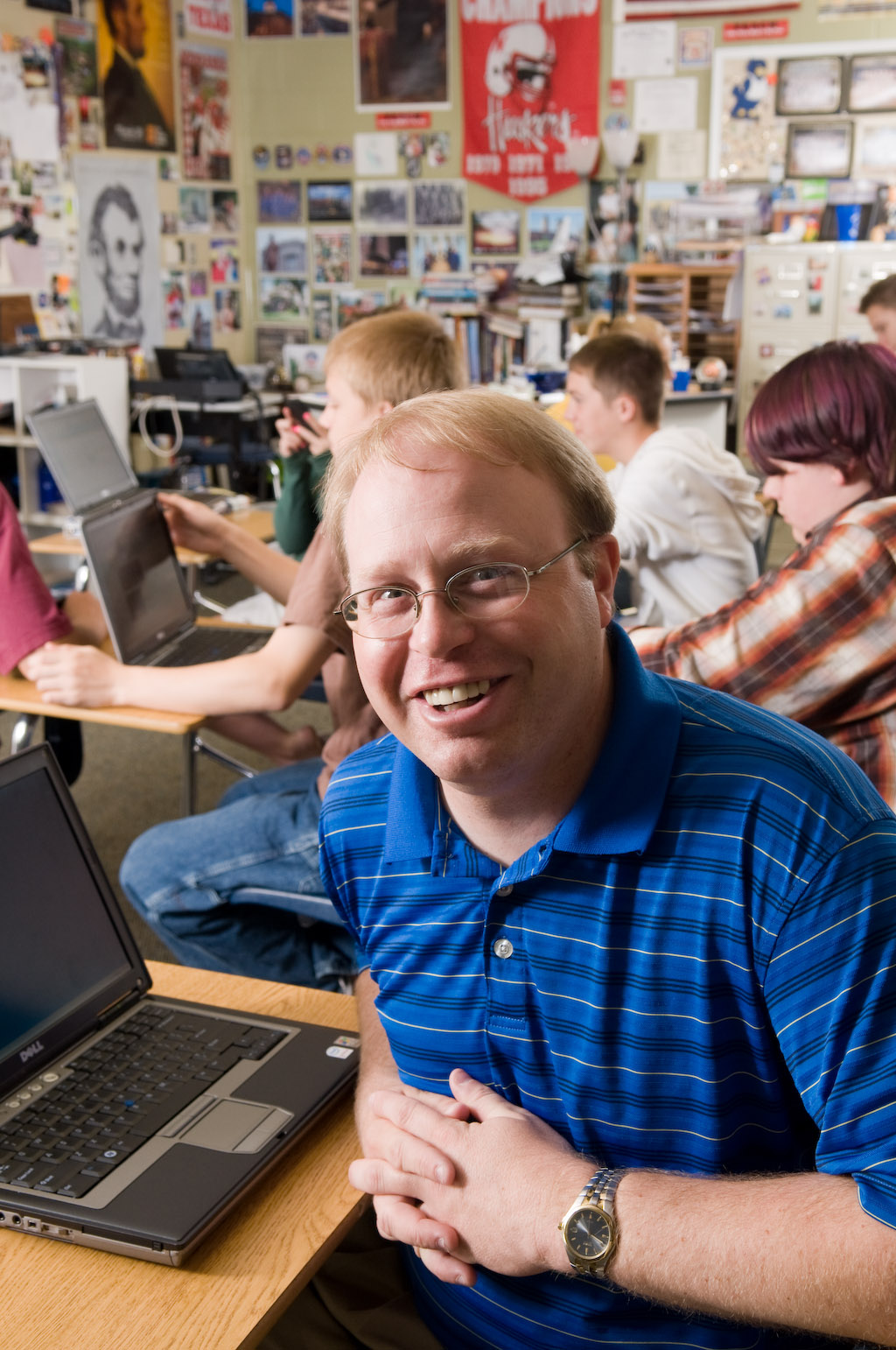This October teachers around the country are participating in activities for Connected Educator Month. Digital Citizenship Week (October 21-25, 2013) places an emphasis on how all of us – teachers, students and parents – can have thoughtful discussions about being ethical and responsible online. It’s so important to have these discussions considering the digital world in which we live.

I am a self-admitted geek – a Google Certified Teacher who carries multiple devices and instinctively checks for Wi-Fi access and electrical outlets whenever I enter a building – but I have no personal experience in navigating today’s digital world as a teenager. My experiences as a digital citizen are entirely as an adult—the first time I saw the internet was as a 23 year old. I’ve never had to make a decision about posting to a social media gaming site or considering if it will hurt my chances for college or a job after I graduate high school. This is my first year teaching a technology course to 8th graders which includes discussions on digital ethics and the importance of creating a positive digital footprint. I will also be teaching these same lessons to my daughters, ages 6 and 10. How do I know what to teach them about these crucial topics and how can I make it relevant to the lives they are living today?
In my technology course this fall, I relied heavily on Cable in the Classroom’s InCtrl lessons on digital citizenship. These lessons fit my needs and are a well-developed approach to teaching digital citizenship issues. The lessons are easy to adapt to my class schedule as well as being ready to use right from the handout. The free, online curriculum includes videos and handouts for teachers as well as students. Teacher videos include background information and tips specifically for classroom use. You can then use the student-focused videos to introduce a topic with your students in an engaging format. The most valuable aspect of the InCtrl curriculum for me was the wide variety of discussion starters provided to initiate conversations with my students. Since I don’t have the personal experience of growing up as a teenager online, I found the most important thing I could do as a teacher was open up conversations and listen. As the adult in the room, I could then add my own perspective of ethical choices and long term consequences. It is important to remember that as the teacher we can provide guidance but we must first allow students to share their own experiences since they are ones living it.
Teaching students to be good digital citizens is an extremely important topic. Unfortunately it is too often neglected because adults are not sure how to address and explain the issues. The InCtrl curriculum helps teachers start the discussion about digital citizenship topics which can then be supported by and continued with discussions at home. At the start of our digital footprint lesson, I asked students to create a list of all the social media networks and sites at which they participate. I was blown away by the roughly 30 different social media sites used by the students in just one class. The list included everything from gaming sites to sports team fan sites. Their digital footprint starts early in their lives and will be so much more extensive than mine. It made me think of what I might have posted as a 13 year old and if I would want it to be part of my “permanent record”? This, again, emphasizes why this is such an important topic to teach students.
I also wanted to demonstrate how much information you can discover about someone from a simple Google search. I asked a couple of students Google their own name, but found as 8th graders, they haven’t created a considerable footprint yet. So then I asked my students to Google my name. I’m relatively active on social media – I blog, podcast, tweet and write for various publications – so quite a few items popped. Since this activity took place at the start of the year, during the first week of class I asked my students to make a list of what they learned about me from just the Google search. It created a great discussion in class. I shared with my students some of the great experiences and connections that I have built through collaboration online and the benefits of maintaining a positive digital footprint.
Please join me and hundreds of other educators and parents during Digital Citizenship Week in talking to students about their digital world. I’ll be sharing my experiences in a free webinar about the InCtrl lessons called Empowering Students to be InCtrl in a Digital Age on Wednesday, October 23rd at 4:00 pm ET. You can also search the Connected Educator Month calendar (use keyword Digital Citizenship Week) for more free webinars and events to help you brush up on the issues, or check out the InCtrl lessons for ideas you can use today!
Eric Langhorst is an American history and technology teacher at Discovery Middle School in Liberty, Missouri. He writes the Speaking of History blog and tweets as @ELanghorst. - See more at: http://www.ciconline.org/blog/posts/teaching-digital-citizenship-everyday/#sthash.7Vm4ZlJJ.dpuf